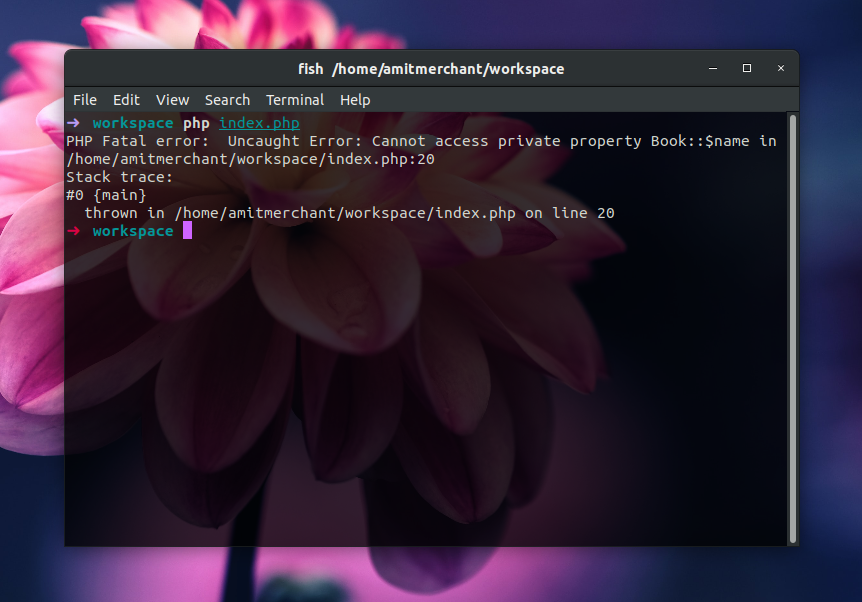Readonly properties are coming in PHP 8.1
PHP, as a language, is ever-changing and ever-evolving. It’s not a language it was 10 years ago. This is all because the PHP’s core team which has been constantly improving minor things that might not look significant at first glance but when fixed/implemented, can dramatically improve the overall developer experience.
One such thing that PHP is going to introduce is called readonly properties in the upcoming version 8.1
Essentially, the readonly properties are introduced to mitigate language’s limitation of not having the ability to declare truly “read only” properties without any gotchas.
The old way
Up until now, if you want to make a certain property sort of read only, the only thing you could do is making it private. Take the following example.
<?php
class Book
{
private $author;
public function __construct(
string $author
) {
$this->author = $author;
}
public function getAuthor(): string
{
return $this->author;
}
}
$book = new Book('Ruskin Bond');
$book->author = 'J. K. Rowling';
// Uncaught Error: Cannot access private property Book::$author
If we run the above example, we will end up with a fatal error that says Uncaught Error: Cannot access private property Book::$author.
As you can tell, using this approach, we can certainly make properties “readonly” but it’s kind of “hacky” and the biggest issue with making the property private is, if you want to access it outside of the class, you must define a getter method for the same.
In our case, if we want to access the author property, we can define a getter method in the class like so.
public function getAuthor(): string
{
return $this->author;
}
So, to mitigate this issue, PHP 8.1 is now introducing full-fledge readonly properties natively.
Readonly properties in PHP 8.1
This RFC by Nikita Popov is going to introduce first-class readonly properties in PHP 8.1.
Essentially, now it will be possible to declare a property as “read only” using the readlonly keyword.
Usage
So, if we want to make the $author property in our previous example as read only, we can do it like so.
<?php
class Book
{
public readonly string $author;
public function __construct(
string $author
) {
// Legal initialization
$this->author = $author;
}
}
$book = new Book('Ruskin Bond');
// Below will work fine
echo $book->author; // string(6) "Ruskin Bond"
As you can tell, using readonly with a public property makes it possible to access the property outside of the class. So, no need to use getter methods anymore!
Can be declared only once
One thing to note here though that is, a readonly property can only be initialized once, and only from the scope where it has been declared. Any other assignment or modification of the property will result in an Error exception.
So, the following will result in an Error exception.
$book = new Book('Ruskin Bond');
$book->author = 'J. K. Rowling'
// Error: Cannot modify readonly property Book::$author
No explicit default value
Apart from this, it’s also not possible to specify an explicit default value on readonly properties.
So, the following will result in a fatal error.
class Book
{
// Fatal error: Readonly property Book::$author cannot have default value
public readonly string $author = 'Ruskin Bond';
}
Used with only typed properties
The readonly modifier can only be applied to typed properties. The reason is that untyped properties have an implicit null default value, which counts as an initializing assignment, and would likely cause confusion.
This can be mitigated by using the mixed type which was introduced in PHP 8.0 like so.
class Test
{
public readonly mixed $prop;
}
In closing
This was your introduction to the readonly properties in PHP 8.1. Using the readonly properties, classes can get rid of the getters and setters and in turn, makes them more concise and crisp.
I have only discussed some of the main features of these properties. But there are a lot of others that I haven’t discussed such as their impact on the inheritance, immutability, Reflection, and so on.
So, if you are interested, go ahead and read this entire RFC!
Like this article? Consider leaving a
Tip👋 Hi there! I'm Amit. I write articles about all things web development. You can become a sponsor on my blog to help me continue my writing journey and get your brand in front of thousands of eyes.





